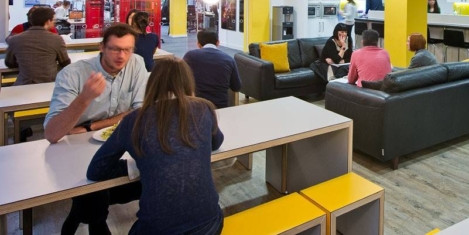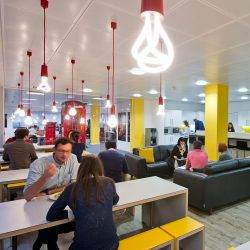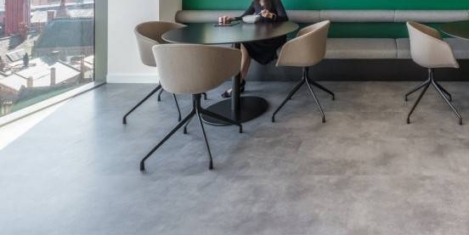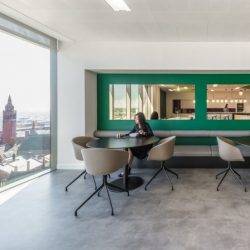November 13, 2018
Fostering creativity within organisations through space and culture
 In organisations around the world, hierarchical structures are breaking down, replaced by deeply interconnected, constantly shifting networks, linked by innovative technology. Meanwhile, huge leaps forward in artificial intelligence promise to fundamentally change the nature of work, either by enhancing or replacing human-beings. Research by McKinsey suggests that half of today’s work activities could be automated by 2055, with repetitive and process-based roles the first to go. For employees, this looks likely to mean a greater focus on creative skills, where humans retain an advantage. These skills are not restricted to being purely artistic, as creativity describes the process of problem-solving in a new way. The rise of creativity is also being driven by new generations entering the workplace with different demands and expectations than those before them.
In organisations around the world, hierarchical structures are breaking down, replaced by deeply interconnected, constantly shifting networks, linked by innovative technology. Meanwhile, huge leaps forward in artificial intelligence promise to fundamentally change the nature of work, either by enhancing or replacing human-beings. Research by McKinsey suggests that half of today’s work activities could be automated by 2055, with repetitive and process-based roles the first to go. For employees, this looks likely to mean a greater focus on creative skills, where humans retain an advantage. These skills are not restricted to being purely artistic, as creativity describes the process of problem-solving in a new way. The rise of creativity is also being driven by new generations entering the workplace with different demands and expectations than those before them.



























 Generation Z, the latest generation of workers to enter the workplace (aged 18-24) are social creatures a new report suggests, preferring to work in an office environment, with only 8 percent thinking they work best from home compared to 20 percent nationally. However, putting aside the assumption this is because they’re sharing a cramped flat or living with parents, even within the office environment, the vast majority (81 percent) think social and communal areas are important workplace facilities compared with only 64 percent of all employees and 58 percent of Baby Boomers.
Generation Z, the latest generation of workers to enter the workplace (aged 18-24) are social creatures a new report suggests, preferring to work in an office environment, with only 8 percent thinking they work best from home compared to 20 percent nationally. However, putting aside the assumption this is because they’re sharing a cramped flat or living with parents, even within the office environment, the vast majority (81 percent) think social and communal areas are important workplace facilities compared with only 64 percent of all employees and 58 percent of Baby Boomers. 








November 15, 2018
Are you ready for the world of agile working we will experience in the 2020s?
by John Eary and Paul Allsopp • Comment, Facilities management, Workplace design
(more…)